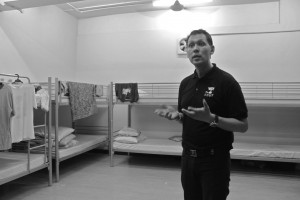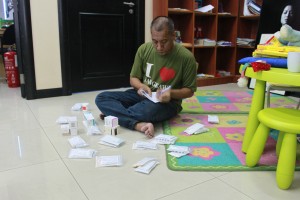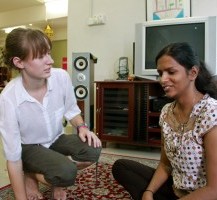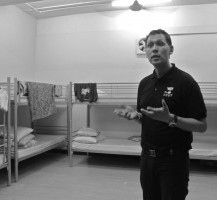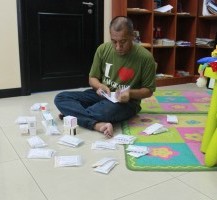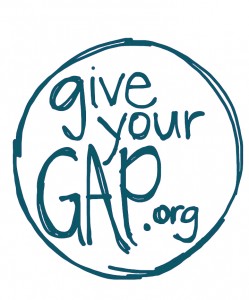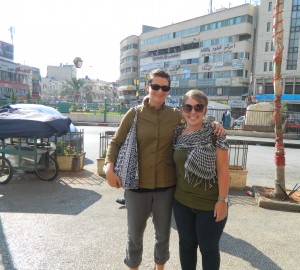The city of Kuala Lumpur is a modern, vibrant, and exciting place. While it is easy to get caught-up in the glamour and fun of the metropolis, as we did during our first few days there, our visit to the PT Foundation gave a us a glimpse of the real life of the city. Not everyone can enjoy the luxuries of the city and the dedicated staff at the PT Foundation work tirelessly to provide the services that marginalized communities need and deserve.
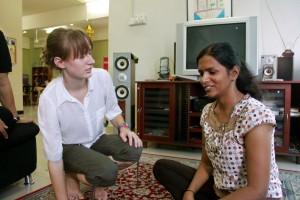
GiveYourGap got to sit down with the coordinator of the Positive Living Programme, a center for people living with HIV.
The PT Foundation is an organization dedicated to helping prevent the spread of HIV/AIDS and enhancing the lives of those living with the disease. They offer free and confidential HIV/AIDS testing along have different programs that help address the needs of the five at-risk groups: those living with HIV, drug-users, sex-workers, transgenders, and MSMs. We were lucky enough to be able to visit their offices, where they offer counseling and support groups for MSM individuals, and the Sex Worker resource center.
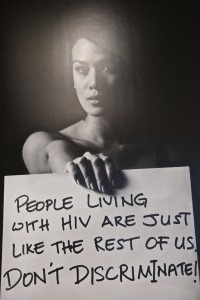
The PT Foundation organized a campaign of international celebrities to bring awareness to the needs of the AIDS-affected community.
As soon as we entered in to the PT Foundation offices, located in a low-income area of Kuala Lumpur, we were immediately welcomed and could feel the supportive environment of the office. They have a small but hard-working staff that comes from all walks of life. All of them offer their individual skills to help the foundation. Their offices are filled with inspirational posters, pamphlets and resources offering advice, and comfortable counseling rooms. Besides the staff there were a number of volunteers, both local and international, who give their time to keep the programs running.
A short distance away from the office centers is the Sex Worker resource center. Here they run a drop-in center offering many programs to help sex workers in the area. The center serves as a safe shelter for these women to stay away from the streets during the day. They also provide them with condoms, sexual health education, HIV/AIDS prevention training and resources. The shelter also provides a safe place for the children of these workers. While the PT Foundation does not promote sex work, they understand that ignoring the needs of the workers will not make it stop… it will merely become more and more unsafe for the women working. In addition to providing a safe environment and health tips, the program also offers support to women wishing to leave sex work and be trained to enter another profession. They also work hard to reduce the stigma that sex workers face so that they might be treated better by society.
The women we met at the center were all strong and hard-working; a diverse group of mothers and transgender people all benefiting from the resources PT was offering. Those who were active sex workers were able to get off the street during the day to enjoy some rest and clean conditions. Others had transitioned into working for the center instead of on the streets. Both employees and clients benefited immensely from the center.
Volunteers played a big part in helping out in most of the centers. At the office there is always extra work that the volunteers can help with, especially if they come in with ideas about what skills they can contribute. In the other programs they can have more time working with people helping out in the centers. We met a wide range of volunteers coming from many different backgrounds and countries. All of them were passionate and inspired by the work both they and the PT Foundation were doing.
We left the PT Foundation feeling excited about the work they were doing and hopeful for the future of the communities they served. Our time in Malaysia was much more enjoyable knowing there were people out there as dedicated and driven as those of the PT Foundation.
To see more, check out our Gapper Video Profile with PT volunteer Asma.

